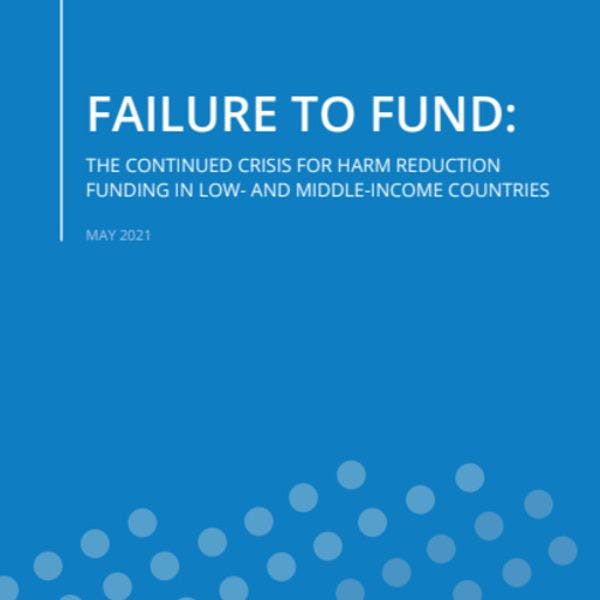HRI
Incumplimiento de financiar: La continua crisis del financiamiento para la reducción de daños en países de ingresos bajos y medios
HRI analiza las asignaciones de financiamiento para la reducción de daños en países de ingresos bajos y medios, advirtiendo una brecha que se ensancha en cuanto a fondos necesarios para satisfacer necesidades básicas de reducción de daños. Más información, en inglés, está disponible abajo.
By Lela Serebryakova, Catherine Cook, & Charlotte Davies / HRI
As the COVID-19 pandemic has brought global health to centre stage, it has never been clearer that ensuring access to health care for all is paramount. People who use drugs are criminalised and marginalised in much of the world, resulting in greater barriers to accessing health services than for the rest of the population. Harm reduction services such as needle and syringe programmes (NSPs) and opioid agonist therapy (OAT) are proven to be effective and cost-effective protection from blood-borne viruses. A comprehensive package of interventions has been endorsed at the highest political level. Insufficient financial support, both for services and the advocacy necessary to garner political will at the national level, remains the major barrier to implementing at scale.
Governments have committed to ending AIDS and tuberculosis, eliminating viral hepatitis and providing universal access to health care by 2030. We will not reach these goals without the leadership of people who use drugs and a fully funded harm reduction response.
Since Harm Reduction International commenced monitoring funding for harm reduction almost 15 years ago, the findings have been consistently dire. Available funding continues to be so far from meeting estimated need that the funding ‘gap’ is more accurately described as a failure to fund. The total number of international donors investing in harm reduction remains small, and the total funds invested by international donors appears to be shrinking. At national level, more data has become available on domestic funding for harm reduction. However, spending on drug law enforcement and imprisonment continues to dwarf investment in harm reduction; with case studies showing over 600 times more spent on punitive policies.
Regiones
Perfiles relacionados
- UNAIDS
- Robert Carr Fund (RCF)
- Global Partnership on Drug Policies and Development (GPDPD)
